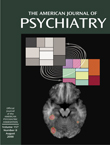Dr. Kendler and Colleagues Reply
Drs. Maciejewski and Mazure raise two relevant issues about our recent article, in which we attempted to estimate the proportion of the relationship between stressful life events and the onset of major depression that was causal. First, they ask whether the odds ratios (not, as they state, the estimated risk for depression) for the association between stressful life events and major depression were significantly different between the monozygotic twins and the general population. It is not possible to formally test these two odds ratios because they were derived from quite different calculations—the first from a co-twin control analysis of twin pairs and the second from an individual-wise analysis of the entire sample, which included the monozygotic twin pairs. We can, however, compare the standard error of these estimates or, more precisely, of the regression coefficients (bs) from which the odds ratios were calculated. For the monozygotic twins, the b for predicting a depressive onset from the occurrence of a personal stressful life event was 1.28 (SD=0.20), whereas the parallel estimate for the entire sample was 1.73 (SD=0.13). Thus, the standard errors of the regression coefficients were far from overlapping, suggesting that these parameter estimates are meaningfully different.
Second, Drs. Maciejewski and Mazure are concerned that our method of assessment may serve to label interpersonal events as dependent. Our instructions to the interviewers were merely commonsense advice: 1) it usually “takes two to tango,” in that most interpersonal conflicts emerge from active interactions between two parties, and 2) when describing interpersonal conflict, many reporters have a bias toward thinking that it is entirely the other person’s fault. This did not result in our interviewers being unwilling to ascribe interpersonal events as independent. For example, in the categories of “serious trouble getting along with an individual” in their network and “serious marital problems,” 9.6% and 14.9% of the events, respectively, were rated as probably or definitely independent.



